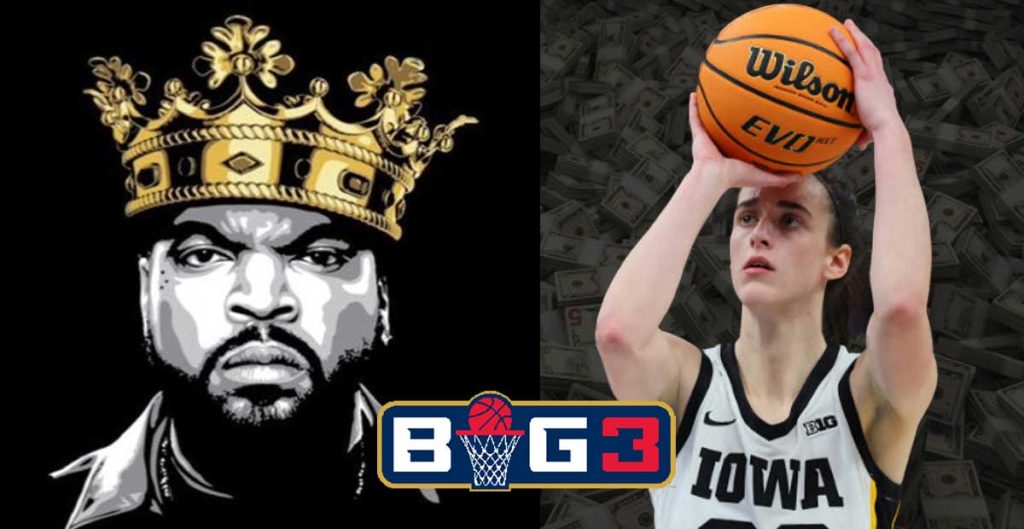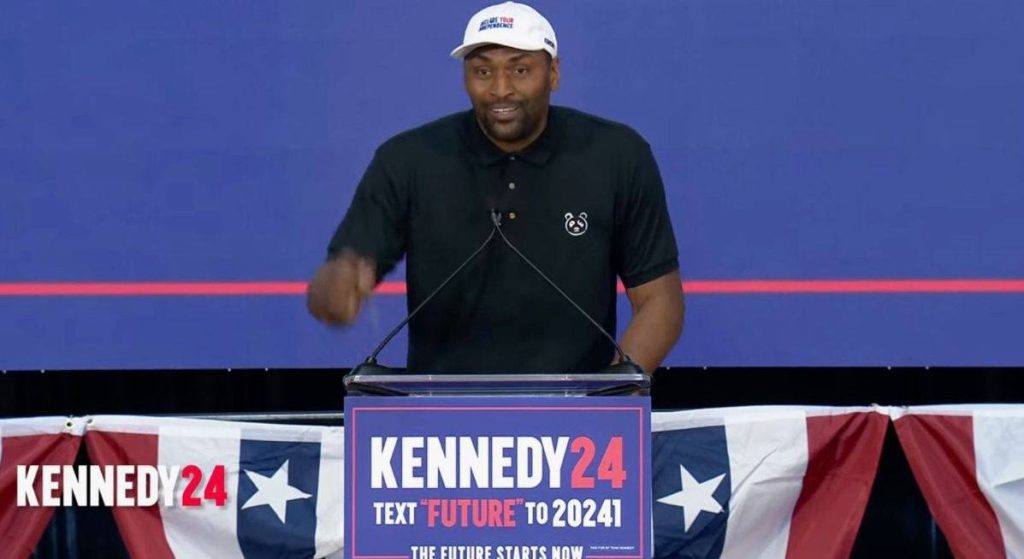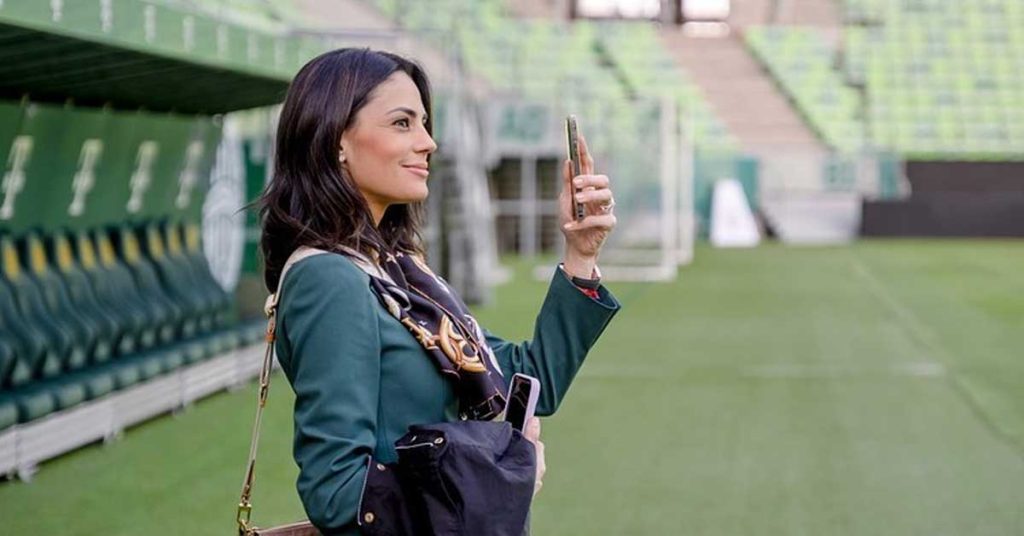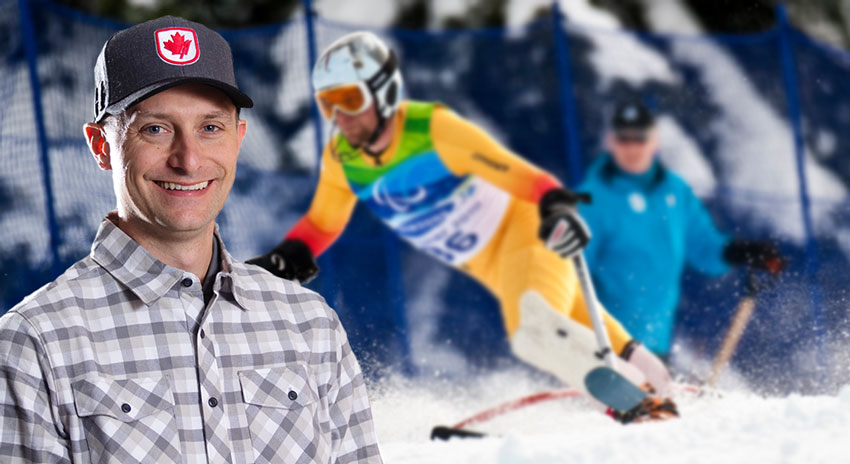
1 on 1 with Matt Hallat | High Performance Director, Para-Alpine | Alpine Canada

My larger goals as a career involved making the world a better place through sport, and this is a tremendous objective that I can imagine will last a lifetime.
Matt Hallat
High Performance Director, Para-Alpine
Alpine Canada
The Latest
Jontay Porter Banned From The NBA For Life
Iowa vs LSU: A Landmark Moment in Women’s College Basketball
Former NHLer Josh Ho-Sang Now A Rapper
Metta World Peace Endorses RFK Jr. for President 2024
1Tell us about your role as the High Performance Director of Para-Alpine for Alpine Canada. What does a typical day look like for you?
The nature of a high performance director means that it’s rare two days look exactly the same. As our program changes with the seasons, so too do my daily duties. In the spring, while the team is focused on dryland and preparation for on-snow training, it allows me to focus on some long term team initiatives and goals. Attempting to improve the processes and plan how we operate.
Through the end of summer, we start skiing in the southern hemisphere, so in July and August we start to shift into on-snow training mode and much of my focus moves to operational for the upcoming season.
Into winter, when the racing begins, the focus is on maintenance and ensuring our staff have what they need to sustain their energy throughout the season and continue to prepare racing and training environments that ensure the athletes have the best opportunity to succeed.
Finally, towards the end of winter and into spring I am the busiest as we are still racing, but also debriefing, planning and preparing funding proposals for the upcoming year.
My world at home looks more traditional with a laptop and cell phone, but the 9-5 schedule doesn’t really apply when the team is around the world racing and training. While on the road, the days are long and intense, but also incredibly exciting as this is where we see the team come alive and we all love to be, even when it’s cold.
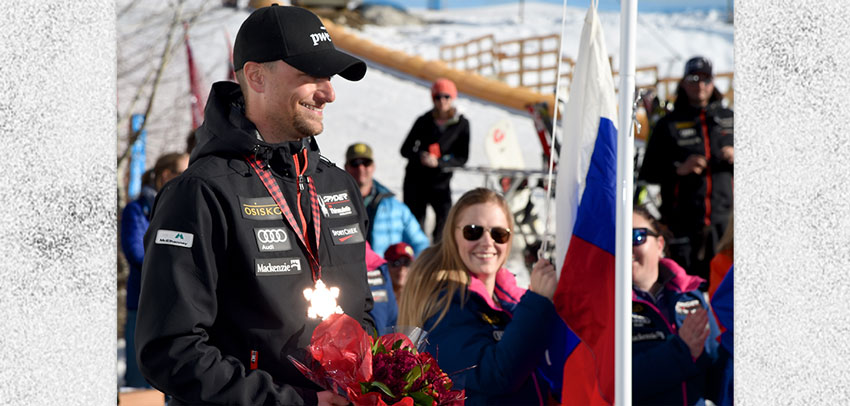
2As a three-time Paralympian, what skills and knowledge did you develop as an athlete that you have transferred to your career?
Growing up as a young amputee, becoming a ski racer, and following a 13-year journey through the Para-Alpine system gave me first-hand experience of many roles. This knowledge helped me see the different perspectives throughout our system and I believe is now my biggest strength.
Throughout my athletic career, I was also able to complete a Bachelor of Business Administration and start a small business with my wife. The combination of my education and real-world business experience gave me a relevant skill set to understand the back-end operations of Alpine Canada and the Para-Alpine program.
Understanding sport is important, but understanding the financial model, and strategic decisions on how to best utilize available resources are critical to success, and I feel I’m well equipped to support the program in this manner.
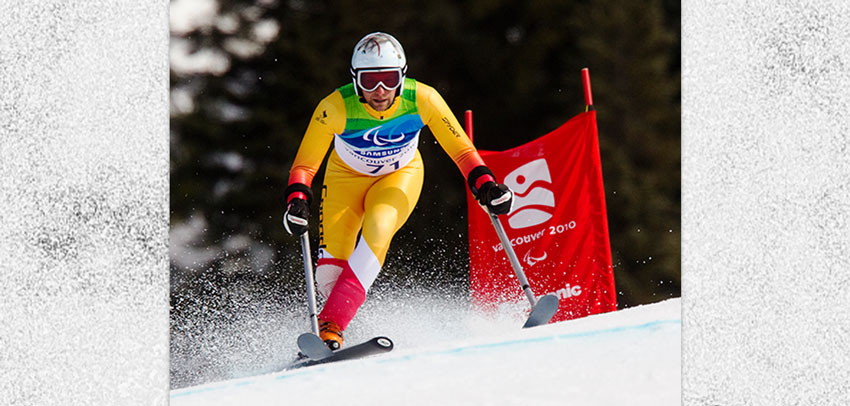
3After moving into a managerial role as High Performance Director of Para-Alpine with Alpine Canada, what were some of the big things you learned jumping into managing people and running the athletic program?
I was extremely fortunate to jump in and start working with Head Coach Jean-Sebastien Labrie, and to have the support of the organization and from my predecessor Brianne Leeman. I was an athlete under their leadership for many years, and the transition to working with them for the program could not have gone better.
I knew in getting started that Jean-Sebastien was well equipped to run the day-to-day operations of the team and that I needed to learn how to best fit in and support him in the short term. Brianne was and remains always available to support with any institutional knowledge or simply as a sounding board for me to bounce my ideas off.
Jumping into the role, I knew I didn’t need to keep anybody motivated, our jobs are amazing, and we feel privileged to work with such a great group of athletes every day. I’ve looked at my role as to how do I keep my staff fresh, healthy and as balanced as possible in what is a tireless, thankless grind through the cold winters. I felt if I could keep taking care of the people, they would take care of those athletes and we’d have a great chance of success.
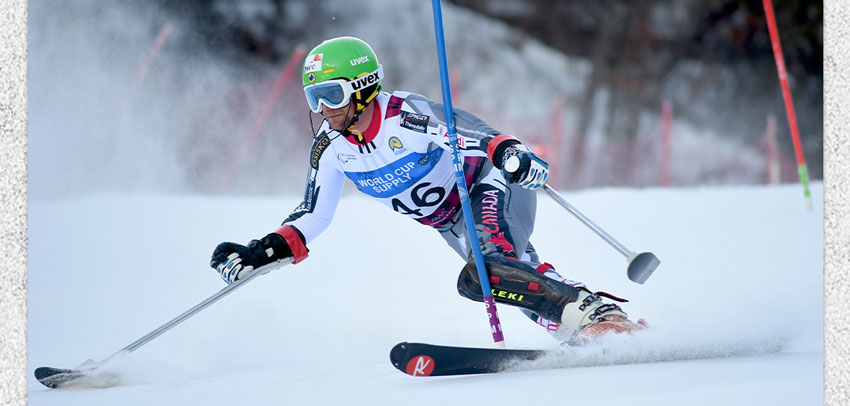
4Since you have multiple aspects to focus on at once (e.g. budget constraints, high performance planning, leading domestic development, multiple requests, etc.). How do you prioritize and manage all that goes into your role? How does someone learn how to do so many things at once like this?
You cannot do everything, and you can’t do it all at once, but with a clear vision, and roles and responsibilities, as a team, we can move forward on a variety of topics over time.
The nature of our jobs is that aspects of this are seasonal and more operational. Budgeting and planning, for example, always happen in the late winter and early spring so they are largely planned out in advance.
The greatest challenges and opportunities for team growth often come in the summer months, and the greatest struggle here is fatigue you’ve built up from the winter. So I’m working on my own improvement to realize I’m only capable of so much, picking up on key elements and most critically of all just getting started.
Paralysis by analysis is a real thing, and I often feel I just need to put pen to paper, or pick up the phone and get started, the rest seems to take care of itself after that.
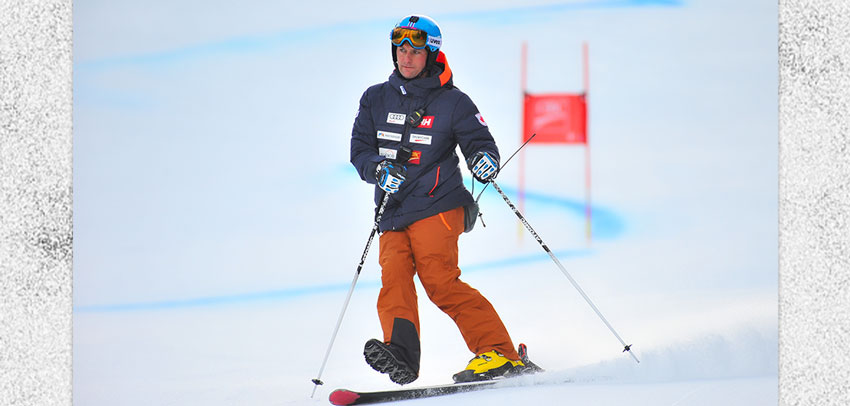
5I imagine goal-setting in your athletic career helped you find success! In your current role, how do you overcome resistance and ensure individual goals are met? How does goal-setting help not only with your job but with your career?
Change is difficult and pushing yourself is challenging for everyone. I continue to work towards ensuring everyone is on the same page when it comes to setting goals, measuring progress throughout, and debriefing goals at the end of the season.
At the end of the day as a program, we can only offer opportunities, and it’s up to the athletes to take advantage. We do everything we can to help guide them and give them the best possible resources to succeed, including working with them to push their own goals higher and strive to achieve them. We’re not always successful, but hopefully, we’re always learning, and getting closer to them.
As an athlete, High Performance Director, husband, father and business owner a day doesn’t go by where I set a short-term goal and strive for it. After retiring as an athlete, the big goals sort of disappear and it takes a little soul-searching to find what’s new and relevant for you.
I’ve always been passionate about all kinds of sport and that hasn’t changed with the completion of my athletic career.
I believe sport has a positive impact on the world.
Play is a part of being human, and like art and music, it brings happiness to people and makes the world a better place.
High Performance sport has its place in there, and that’s where I fit today. My larger goals as a career involved making the world a better place through sport, and this is a tremendous objective that I can imagine will last a lifetime.
6Finally, what advice would you give to prospective sport management professionals or former athletes looking to work in sport at a similar level to yourself but just starting off in their career?
Get started.
Understand the financials and back end. X’s and O’s of sport are great, but you have to have a grasp of what’s feasibly and financially possible in your realm of the world to set realistic goals and expectations for yourself and your sport.
Take a break at some point. Your passion can carry you a long way, but it can also burn you out. Lead by example in this area.
[get_current_post_author_pic_and_name]
As a ski racer, Matt basically grew up with Alpine Canada. Along the way, Matt learned about the Para-Alpine system and all that goes into it. With that being said, it is no wonder he was named High Performance Director of Para-Alpine for Alpine Canada! Matt's passion for the sport shines through his work as he truly strives for Alpine Canada and their athletes to be at their best. The work Matt undertakes as a High Performance Director is necessary in furthering the development of Para-Alpine: executing Alpine Canada's vision flawlessly and ensuring all athletes have the best opportunity to succeed.





